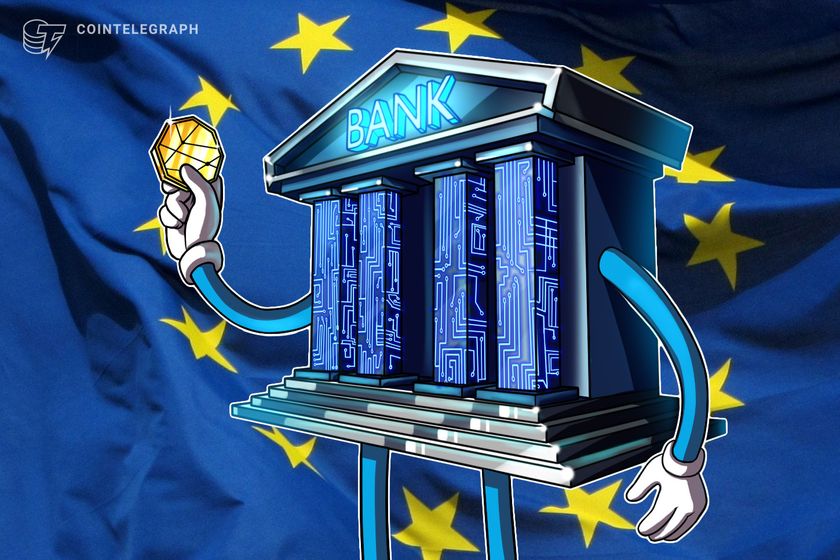In a notable shift for the European financial landscape, Bunq, the second-largest neobank on the continent, is making significant strides into the world of cryptocurrency. On April 29, the Amsterdam-based bank unveiled its new crypto service, Bunq Crypto, allowing users to invest in over 300 digital assets including popular cryptocurrencies like Bitcoin (BTC), Ether (ETH), and Solana (SOL). This move is positioned to cater to a rising demand among retail investors eager to access digital investments.
Initially available in select countries—namely the Netherlands, France, Spain, Ireland, Italy, and Belgium—this cryptocurrency feature is part of Bunq’s broader mission to deliver a comprehensive financial experience all within one app. By collaborating with Kraken, a well-established cryptocurrency exchange, Bunq ensures that customers can trade with confidence. This innovation not only aligns with consumer trends but also reflects a significant shift in how people wish to engage with their finances.
“Our users across the world have long waited for a simple, safe and straightforward way to invest in digital assets,” said Ali Niknam, founder and CEO of Bunq.
The bank plans to extend its crypto offerings throughout the entire European Economic Area, as well as into the United States and the United Kingdom, making this only the initial phase of its global expansion into digital currencies. As of June 2024, Bunq boasted over 12.5 million users, a substantial increase from the previous year, highlighting the growing interest in more integrated financial services.
A recent study commissioned by Bunq revealed that about 65% of European consumers are on the lookout for a seamless platform that integrates banking, savings, and cryptocurrency investments. Many current platforms, according to over half of surveyed investors, fail to meet expectations in terms of simplicity and security—especially for newcomers to the crypto space.
This trend of unifying financial services into single platforms is mirrored across the industry, as seen in similar expansions by other fintech firms. The move by Bunq underscores a significant evolution in how consumers desire to manage their finances, all within an increasingly digital world.
Bunq Expands Into Cryptocurrency
The launch of Bunq Crypto marks a significant step in the neobank’s evolution, reflecting broader trends in the financial industry.
- Bunq’s Launch of Bunq Crypto:
- Introduced on April 29, allowing users to invest in over 300 cryptocurrencies, including Bitcoin, Ether, and Solana.
- Available to users in the Netherlands, France, Spain, Ireland, Italy, and Belgium.
- Strategic Partnership with Kraken:
- Collaboration with the 14th-largest cryptocurrency exchange ensures robust trading capabilities.
- Continued Global Expansion Plans:
- Phased rollout of crypto trading across the entire European Economic Area, United States, and United Kingdom.
- Reflects increased retail investor demand worldwide for digital assets.
- Growing User Base:
- Bunq reported over 12.5 million users as of June 2024, up from nine million the previous year.
- Trend Toward All-in-One Financial Platforms:
- Shifts in the industry focus on consolidating banking, savings, and investing into single digital platforms.
- Coinbase CEO predicts a future centered on a primary financial account for managing all financial activities.
- Diverse Consumer Demand:
- 65% of European consumers seek a unified platform for banking and cryptocurrency investments.
- Over 50% of surveyed investors want crypto exposure but find current platforms lacking in simplicity and security.
- User-Centric Philosophy:
- Bunq emphasizes providing a simple, safe, and straightforward way to invest in digital assets.
- CEO Ali Niknam highlights a commitment to integrating all financial needs on one platform.
Bunq’s move into cryptocurrency is not just about offering new investment avenues but also about reshaping how users interact with and manage their finances.
Bunq’s Bold Leap into Cryptocurrency: A Competitive Perspective
Bunq’s recent foray into the cryptocurrency space positions the neobank as a significant contender within the rapidly evolving financial technology landscape. As Europe’s second-largest neobank, its launch of Bunq Crypto allows users to invest in over 300 cryptocurrencies directly through its app, aptly catering to the burgeoning demand for seamless access to digital assets. This advancement not only enhances Bunq’s product offerings but also aligns with a wider trend in the fintech realm where all-in-one platforms are increasingly sought after.
Competitive Advantages: The integration of Kraken’s trading technology brings a level of credibility and security that could be appealing to both novice and seasoned investors alike. In an era when accessibility and user experience reign supreme, Bunq’s all-encompassing platform could capture the interest of a substantial demographic of retail investors who are frustrated by fragmented crypto services. The data indicating that 65% of European consumers desire a unified financial platform reinforces the strategic timing of this launch. A direct competition with established players such as Revolut, which has already initiated similar offerings, also places Bunq at a favorable point in the race for market dominance.
Competitive Disadvantages: Despite its potential, the challenge remains significant as the cryptocurrency market is teeming with competition. Companies like Coinbase and Binance have an established user base and a range of services that Bunq may struggle to match initially. Moreover, the regulatory environment surrounding cryptocurrencies is intricate and constantly evolving; thus, Bunq may encounter hurdles as it expands into new markets like the United States and the United Kingdom. This could potentially delay service rollouts or amplify operational costs, putting pressure on profitability in the early stages of its venture.
The introduction of Bunq Crypto primarily benefits tech-savvy individuals who favor a streamlined financial ecosystem. Retail investors interested in diversifying their portfolios now have the advantage of engaging with cryptocurrencies while managing other financial activities in one place. Conversely, traditional banks may find themselves increasingly pressured to respond to such innovations; failure to meet modern consumer expectations could create friction in retaining existing clients. Furthermore, if Bunq succeeds in attracting new investors who may otherwise have gone with more established exchanges, a significant shift in market share could occur, jeopardizing the stability of traditional banking models.















